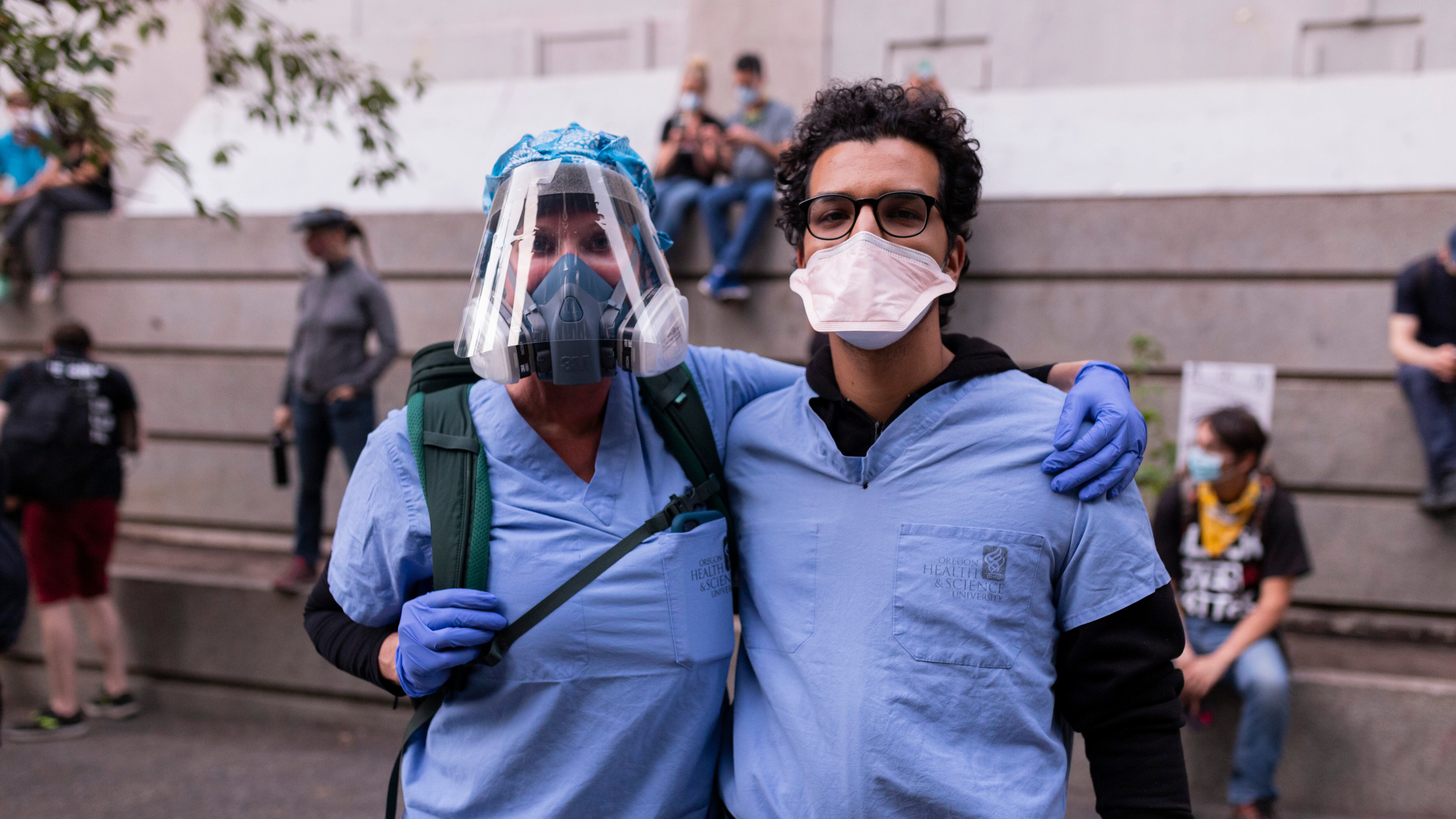If the spit mAsK DOESN'T WORK for CS gas, why do geniuses think the mAsK works for COVID-19? [I] have tested the mAsKs personally as a professional combat team leader. A spit mAsK has never worked for biological agents like COVID-19, fools. Never. —Steve M.
I get the distinct impression you're not actually looking for an answer, Steve. Nonetheless, I'm going to take advantage of this rare opportunity to be the bigger person (it's not often I meet someone even more petty and vindictive than myself) and provide one.
The most obvious reason to believe masks are useful is the fact that doctors, nurses and other biological-agent wranglers have been wearing them for 150 years, and it's kind of stretch to think they've been doing it just to piss you off.
I sense, however, that this won't convince you—you've seen with your own eyes that masks aren't effective against droplets of CS (that's tear gas, for you civilians), so why should they be effective against droplets of coronavirus-infected sputum?
Setting aside the somewhat glaring fact that the primary target of tear gas is your eyes, which masks don't cover, you have a point: Paper and cloth masks let enough CS through that they're not much help in a tear gas attack.
However, no one (so far) has started throwing exploding canisters of pure coronavirus into crowds of people. I won't bore you with the math, but the number of people who would have to sneeze on you all at once to equal the droplet concentration you experience downwind of one CS canister could populate a small city.
A mask just needs to stop most of the big drops—both inbound and outbound—which is where the bulk of the virus is. That's sufficient to reduce the chance of transmission between masked people by two-thirds compared to unmasked folks, according to data from the American Society for Microbiology.
Think of it this way: As a gun enthusiast (you didn't say so, but I've got a feeling), you're well aware that a Kevlar vest doesn't guarantee you won't be killed by gunfire. But when a firefight erupts at the family Christmas dinner, it's a lot better than nothing.
Questions? Send them to dr.know@wweek.com.

